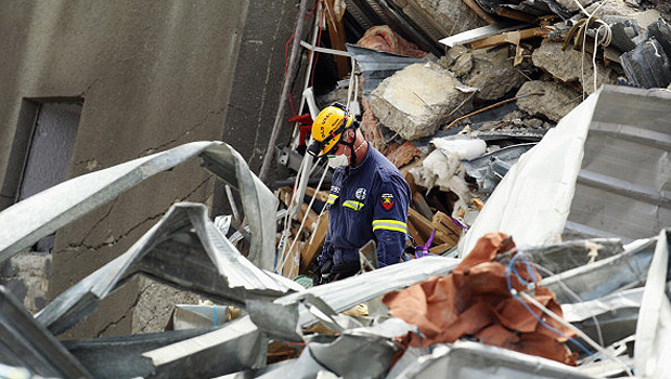
New Zealand's professional engineering body has tightened up its code of ethics in the ongoing wake of the February 2011 Christchurch earthquake disaster.
The Canterbury Earthquakes Royal Commission recommended that Institution of Professional Engineers (Ipenz) should clarify its code of ethics, in relation to reporting risks to public health and safety.
A total of 185 people died in the magnitude 6.3 quake at 12.51pm on February 22, 2011, including 115 people when the six-storey Canterbury Television building collapsed.
In studying the collapse of the CTV Building, the royal commission found serious errors by engineers, structural designers and Christchurch City Council.
The royal commission criticised Dr Alan Reay of Alan Reay Consultants, which designed the ill-fated Christchurch office block in the mid-1980s, for giving his inexperienced structural engineer David Harding "sole responsibility" for the job.
Dr Reay was also criticised for not reviewing his designer's final plans.
Ipenz has now changed its rules so that members will not be able to avoid its disciplinary processes by resigning their membership in the future.
"This is part of a suite of changes we are currently making to our complaints process to ensure it is robust, transparent and fair," Ipenz Chief Executive Susan Freeman-Greene said.
Ipenz has spent three years developing and consulting the new code, which comes into force on July 1.
Ms Freeman-Greene says the code sets out engineering professionals’ duty to the public and to each other.
“This code has new obligations that raise the bar for engineering professionals," she said.
“Engineers’ work affects all New Zealanders, every day. We need a robust and clear professional framework that everyone can trust."
Under the new code, engineers have a new obligation to report "potential adverse consequences for people’s health and safety" and for the environment.
Ms Freeman-Greene said that if an engineer became aware of any concerns, including potential design flaws in a building under construction, or poor construction practices that threaten health and safety, they should report it.
Another change is that if an engineer suspects another engineer has significantly breached the code, they must also take action.
The new code, which covers Chartered Professional Engineers and all members of Ipenz, which includes professional engineers, technologists and technicians, also makes explicit engineers’ obligation to keep their knowledge and skills up to date, and to treat others with respect and courtesy.
Take your Radio, Podcasts and Music with you









